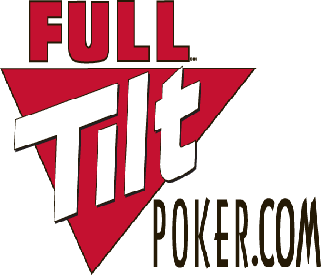 Full Tilt Poker was the second largest online poker site one year ago. Its poker client was state-of-the-art with many new games only available to FTP players. Rush poker was an interesting way to play a lot of ring game poker without opening multiple tables. It was the perfect game to play on a phone or tablet. People were throwing out rake numbers of around $3 million a day.
Full Tilt Poker was the second largest online poker site one year ago. Its poker client was state-of-the-art with many new games only available to FTP players. Rush poker was an interesting way to play a lot of ring game poker without opening multiple tables. It was the perfect game to play on a phone or tablet. People were throwing out rake numbers of around $3 million a day.
How Do You Kill The Goose Laying The Golden Eggs?
It all starts in 2006 when Full Tilt Poker became the second largest site after Party Poker and others closed their doors to the US market. At this time, the US market represented well over 50 percent of the online poker traffic. PokerStars took to developing markets like Germany, Italy, Spain and Russia. Full Tilt spent the majority of their marketing money in the US and Canada.
Fast forward to the fall of 2010, a few times since 2006 the Department of Justice would seize bank accounts connected to payment processors for online poker sites. Emails would be sent stating checks would bounce and e-check deposits would be turned off until a new processor could be found. Full Tilt Poker kept accepting e-check deposits, while PokerStars and others turned off the option.
What is the $400 Million Dollar question? We may never hear the truth or find out who knew what when. My theory is Ray Bitar, CEO of Full Tilt Poker, thought they would have a new processor in a matter of weeks so this made for a great opportunity to gain market share.
The Aftermath
Warren Buffett has a quote that fits: “You know who isn’t wearing a swimsuit when the tide goes out.” On April 15, 2011 FTP got caught with their pants down. The DOJ seized bank accounts and their website within a matter of hours FTP/Stars and others were no longer allowing players from the USA play for real money. FTP did a horrible job communicating with players about their deposits which caused players from outside the USA to be uncomfortable. There was a run on the bank and within a matter of months they were closed down and completely broke.
Unregulated online poker is coming to an end. The good news is your local government will be involved. The bad news is your local government will be involved. I live in the US and expect regulations within a few months (soon). France and Italy have had regulated online poker for awhile now giving governments everywhere examples of what not to do. Online poker sites were facing margins approaching 20 percent so it would be impossible for a site to pay for a license plus pay over 25 percent on the rake they collect.
To make money, online poker sites will need to save money. The two easiest places to save money are likely to be affiliate payments and rewards to players. The industry is about ten years old; one of the issues with running an internet business is its always changing. What worked in 2009 is now ancient history. PokerStars was very good a hiring people from other companies keeping their ideas from becoming stale.
How does the Chinese proverb go? “May you live in interesting times.” If you are in the online poker business you already know how interesting it has been and it’s only going to get more interesting for the near future.
About the Author:
Scott Yeates is the head of Poker Consulting Services with Hybrid Interaction Ltd., also known as the legendary “ScottY” from his former position as the VIP Manager for PokerStars. Following a successful career as a world class online poker player, he decided to “switch sides” and now he advice leading iGaming brands on best practices for Rewards Programs Development. For further info, please contact [email protected] at Hybrid Interaction.
-
For Advertisers
-
List Your Affiliate Program
iGaming Services
Find a Gaming Product and Service Provider-
Services Categories
- Business Consulting
- Copyright
- Domains
- Hosting
-
For Advertisers
-
Sell My Product or Service Now!